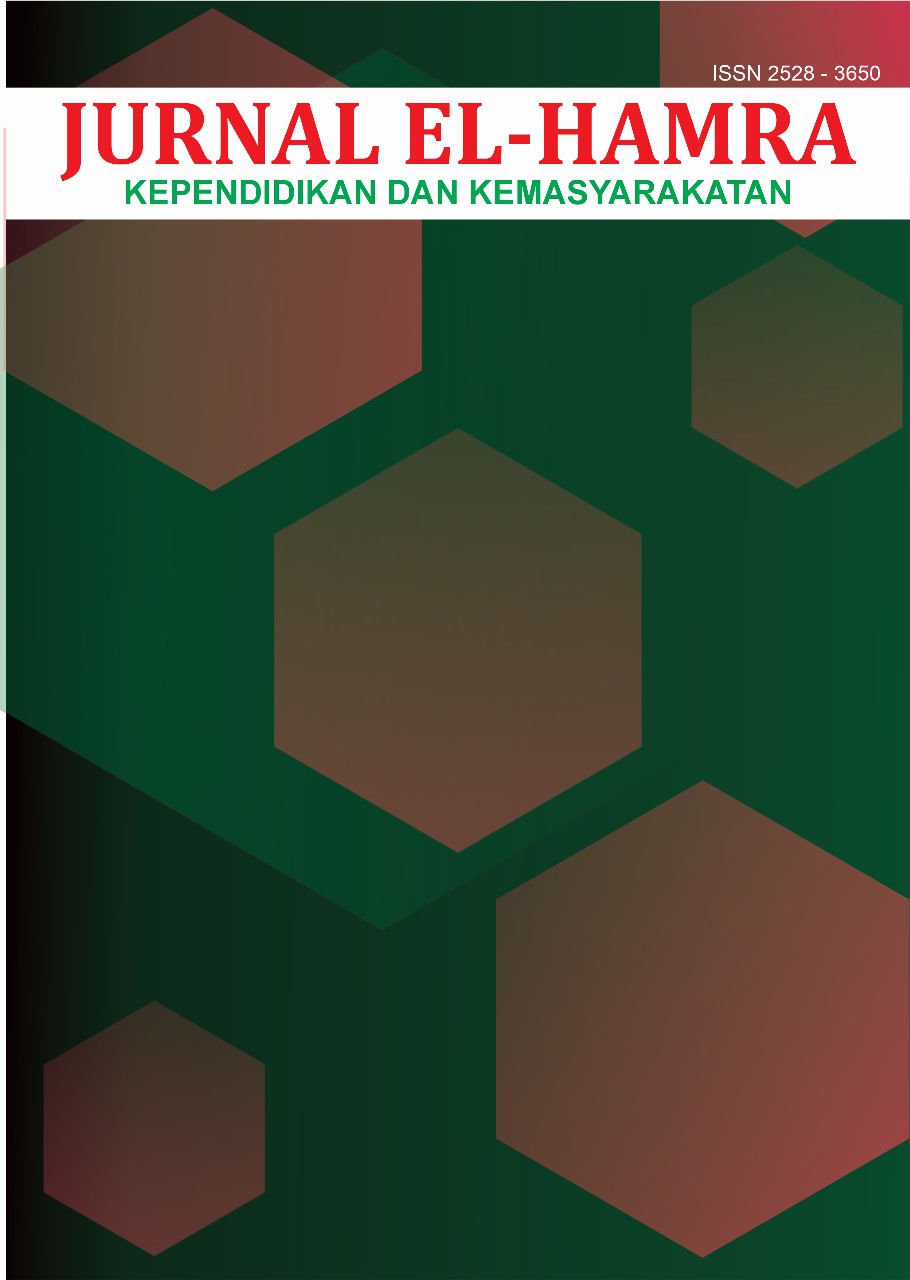PENDIDIKAN INTEGRATIF–INTERKONEKTIF; KAJIAN FILSAFAT PENDIDIKAN
Upaya Menemukan Landasan Pendidikan Integratif)
Keywords:
integrative education, educational philosophyAbstract
The current social reality, the educational process that takes place in public education institutions and in Islamic educational institutions still separates the two subjects, namely general subjects and religious lessons. Teachers only provide general knowledge during general lessonssuch as IPA, IPS, Indonesian, and others that are general, and vice versa teachers only provide religious knowledge of religious lessons in progress. This suggests that current education still contains dichotomic views. The concept of the integrity of science that is in accordance with the Qur'an and Hadith as well as the scholars' earlier needs to be re-realized in the present era. So it is necessary to study deeply to find the basis of integrative education through philosophical study. It is an attempt to eliminate the existence of a scientific dichotomy or attempt to integrate general science "science" and religion by referring to the philosophy of education. In this study found that integrative education holistically integralistically involves the realm of philosophy; first, the ontology of "the existing essence", both in the form of real and unreal realms, in the Qur'an is contained in qouliyah, kauniyah and nafsiyah verses. Second, the epistemology of "Knowledge theory" that is, optimizing the sensory functions (sight, hearing and conscience). Third, the axiology is the realization of the benefits and blessings of science, so that will create human beings
who can be responsible in the future.
Key Words: integrative education, educational philosophy
Downloads
Published
Issue
Section
License
Penulis yang karyanya diterbitkan dalam Jurnal El-Hamra : Kependidikan dan Kemasyarakatan wajib menyetujui persyaratan berikut:
1. Hak Cipta dan Lisensi:
- Penulis tetap memegang hak cipta atas karyanya.
- Penulis memberikan hak publikasi pertama kepada jurnal.
- Karya yang diterbitkan dilisensikan di bawah a Creative Commons Attribution 4.0 International License (CC BY 4.0). Lisensi ini mengizinkan pihak lain untuk berbagi karya dengan mengakui kepenulisan dan publikasi awal dalam jurnal ini.
2. Distribusi Non-Eksklusif:
- Penulis diizinkan untuk membuat perjanjian kontrak tambahan yang terpisah untuk distribusi non-eksklusif dari versi jurnal yang diterbitkan.
- Contoh distribusi non-eksklusif:
- Menyimpan karya di repositori institusional.
- Menerbitkan karya dalam buku.
- Dalam setiap bentuk distribusi non-eksklusif, pengakuan atas publikasi awal dalam jurnal ini wajib dicantumkan.
3. Publikasi Online:
- Penulis diizinkan dan didorong untuk memposting karya mereka secara online sebelum dan selama proses penyerahan.
- Contoh platform publikasi online:
- Repositori institusional.
- Situs web pribadi.
- Publikasi online karya sebelum dan selama proses penyerahan diharapkan dapat:
- Meningkatkan pertukaran informasi yang produktif.
- Meningkatkan kutipan dan jangkauan karya yang diterbitkan.







